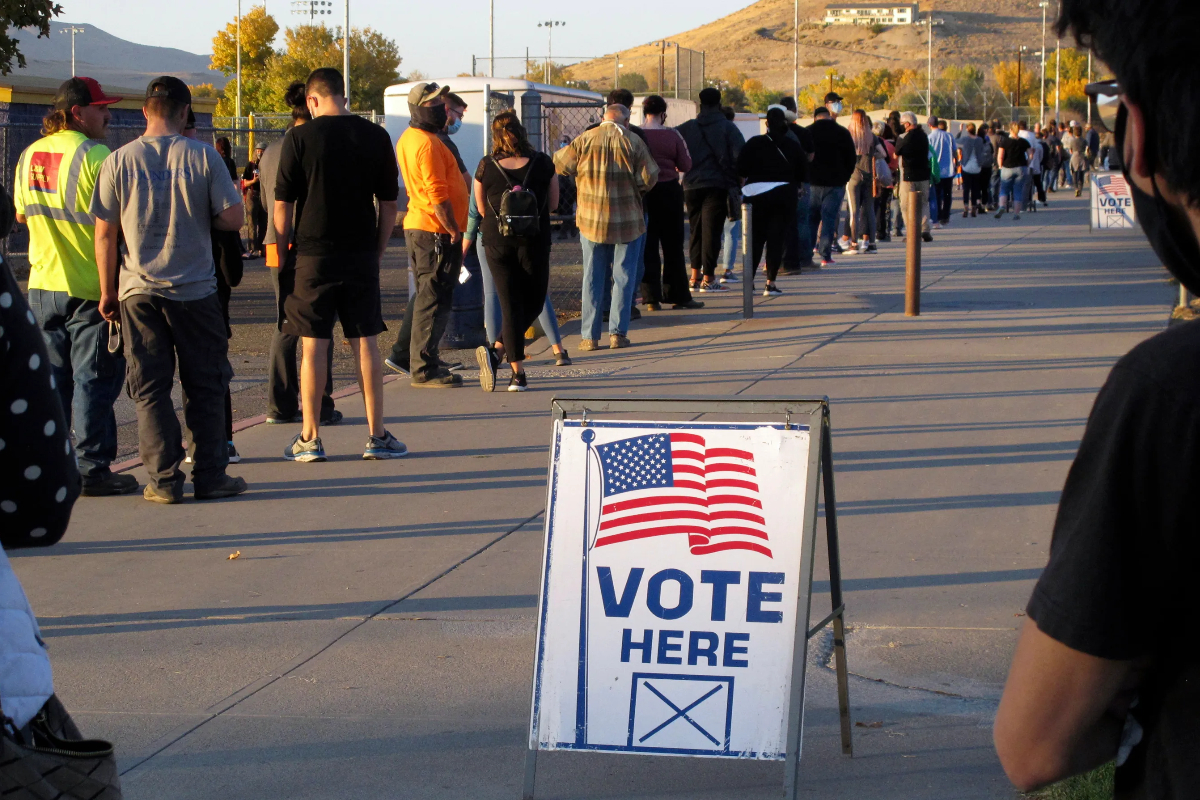WASHINGTON: A senior U.S. cyber official said her agency had not seen any major incidents reflecting foreign interference in presidential election as voting moved into its final hours.
There was little evidence of significant disruption to election infrastructure, Cait Conley, a senior official at the Cyber security and Infrastructure Security Agency, told reporters.
“At this point, we are not currently tracking any national level significant incidents impacting security of our election infrastructure,” said Conley, whose agency is responsible for protecting critical American infrastructure, including election infrastructure, which can include voter databases, tabulators and vote counting software.
Earlier Tuesday, the FBI warned Americans about two new fake videos falsely citing terror threats and voter fraud, the latest in a string of disinformation that officials expect will intensify, especially if uncertainty over the winner lingers past Election Day.
One fabricated video purporting to be from the federal law enforcement agency falsely cited a high terror threat and urged Americans to “vote remotely,” while another video includes a fake press release alleging to be from the agency and claiming rigged voting among inmates in five prisons.
Both are inauthentic, the Federal Bureau of Investigation said in a statement.
Hoax bomb threats hit a series of polling locations in three battleground states, the bureau said later Tuesday.
“None of the threats have been determined to be crediblethus far,” the FBI said. At least two polling sites targeted by the hoax bomb threats in Georgia were briefly evacuated . Republican Georgia Secretary of State Brad Raffensperger blamed Russian interference for the Election Day bomb hoaxes.
U.S. intelligence agencies last week blamed Russia for a false video purporting to show a Haitian immigrant claiming to have voted multiple times in the U.S. state of Georgia. Over the weekend, the FBI warned about several other fake videos.
Russia routinely denies interfering in American politics.
Most of the obstacles voters faced tended to be more prosaic: long lines, paper jams, and power outages.
Slow-updating computer software delayed voters in Louisville, Kentucky, a local official told Reuters. In rural Pennsylvania, a computer software glitch meant some ballots could not be immediately tabulated, officials there said.
US official sees little voting disruption tied to foreign interference
WASHINGTON: A senior U.S. cyber official said her agency had not seen any major incidents reflecting foreign interference in presidential election as voting moved into its final hours.
As of 1:30 p.m. ET (1830 GMT), there was little evidence of significant disruption to election infrastructure, Cait Conley, a senior official at the Cyber security and Infrastructure Security Agency, told reporters.
“At this point, we are not currently tracking any national level significant incidents impacting security of our election infrastructure,” said Conley, whose agency is responsible for protecting critical American infrastructure, including election infrastructure, which can include voter databases, tabulators and vote counting software.
Earlier Tuesday, the FBI warned Americans about two new fake videos falsely citing terror threats and voter fraud, the latest in a string of disinformation that officials expect will intensify, especially if uncertainty over the winner lingers past Election Day.
One fabricated video purporting to be from the federal law enforcement agency falsely cited a high terror threat and urged Americans to “vote remotely,” while another video includes a fake press release alleging to be from the agency and claiming rigged voting among inmates in five prisons.
Both are inauthentic, the Federal Bureau of Investigation said in a statement.
Hoax bomb threats hit a series of polling locations in three battleground states, the bureau said later Tuesday.
“None of the threats have been determined to be crediblethus far,” the FBI said. At least two polling sites targeted by the hoax bomb threats in Georgia were briefly evacuated . Republican Georgia Secretary of State Brad Raffensperger blamed Russian interference for the Election Day bomb hoaxes.
U.S. intelligence agencies last week blamed Russia for a false video purporting to show a Haitian immigrant claiming to have voted multiple times in the U.S. state of Georgia. Over the weekend, the FBI warned about several other fake videos.
Russia routinely denies interfering in American politics.
Most of the obstacles voters faced tended to be more prosaic: long lines, paper jams, and power outages.
Slow-updating computer software delayed voters in Louisville, Kentucky, a local official told Reuters. In rural Pennsylvania, a computer software glitch meant some ballots could not be immediately tabulated, officials there said.
















